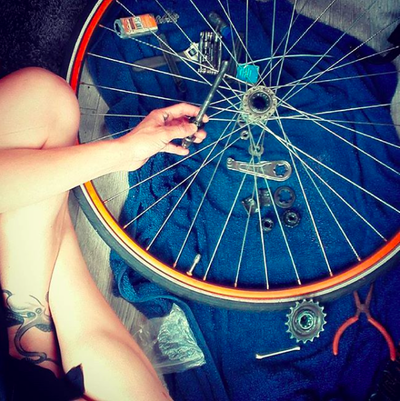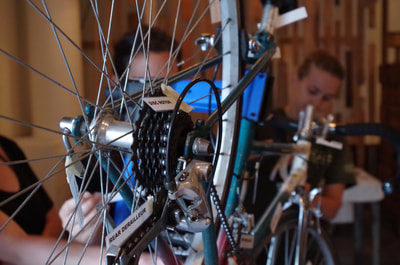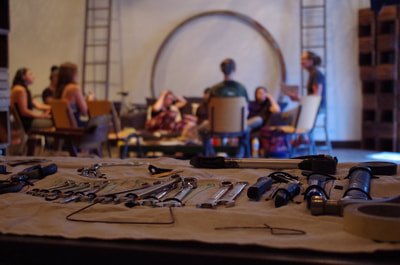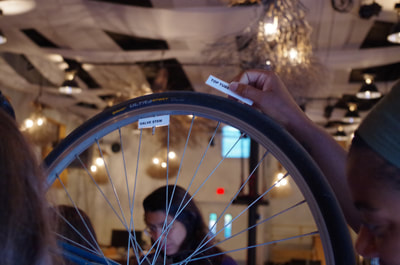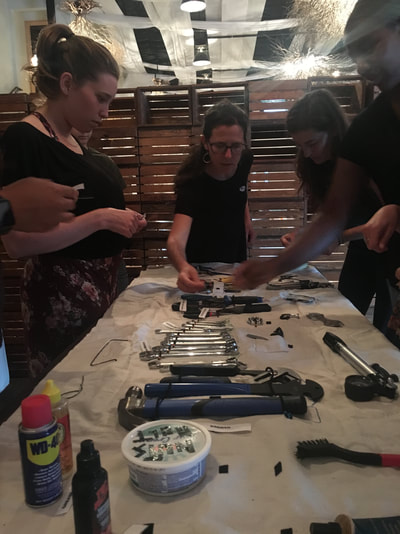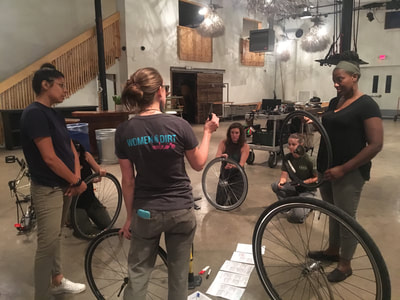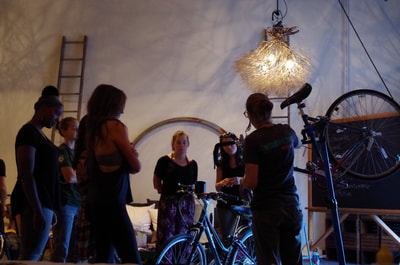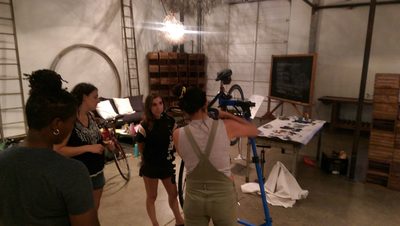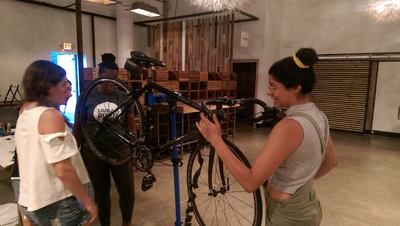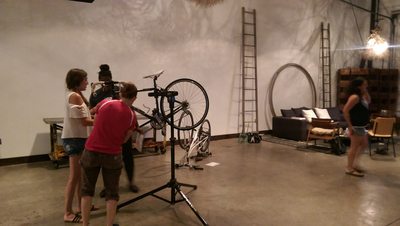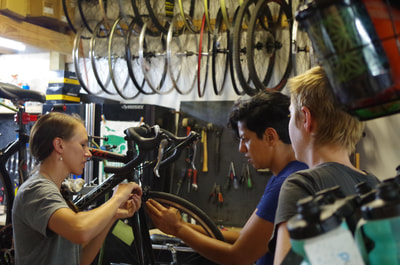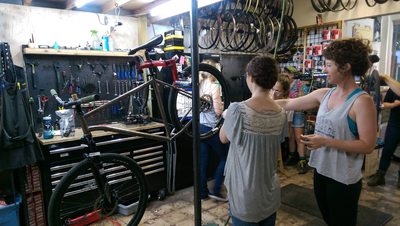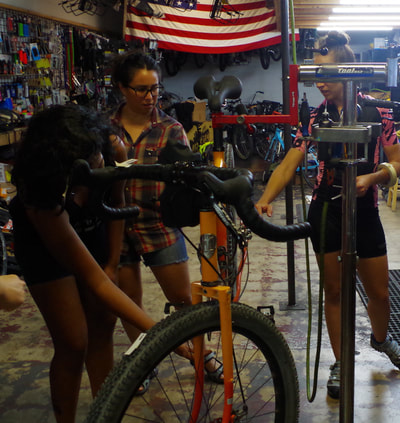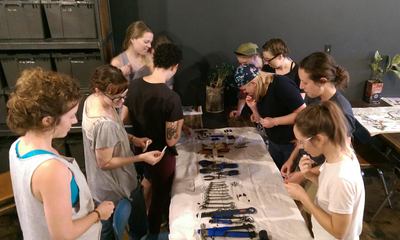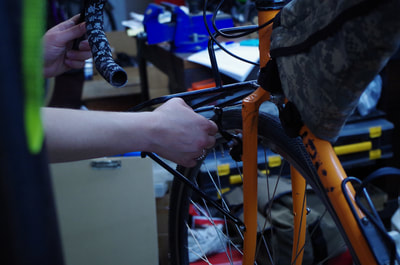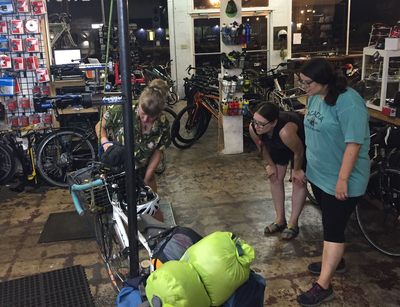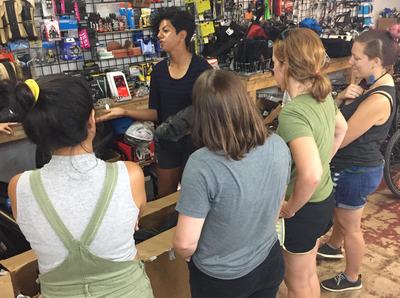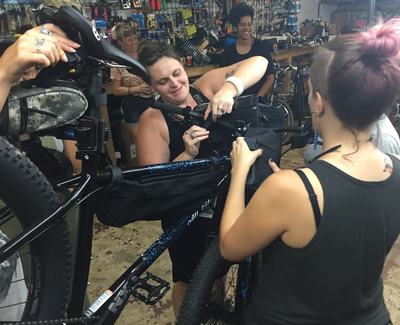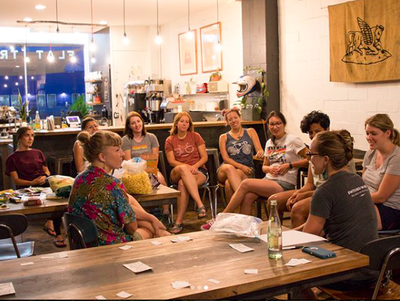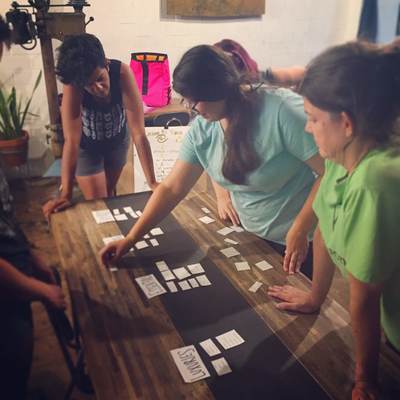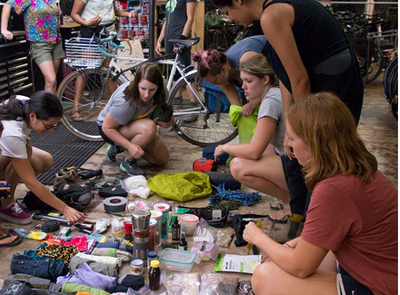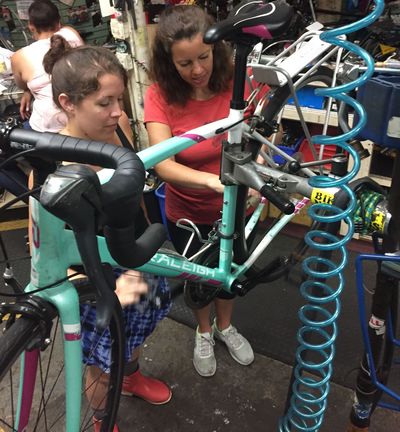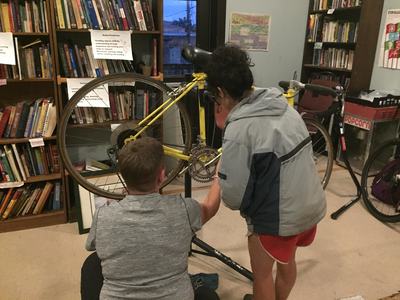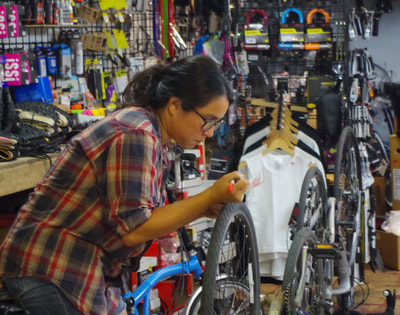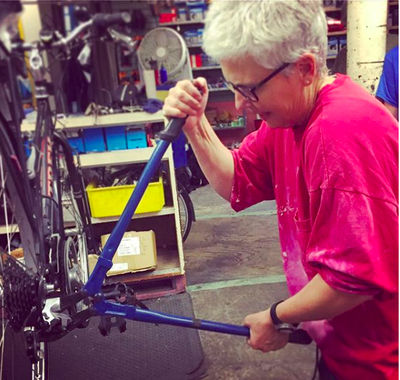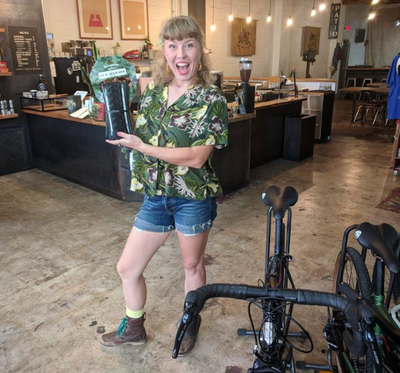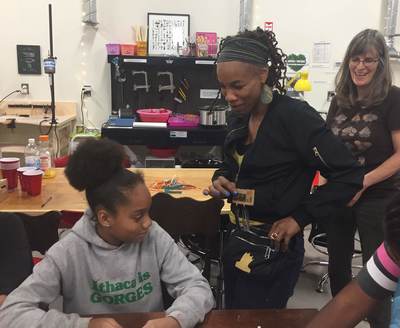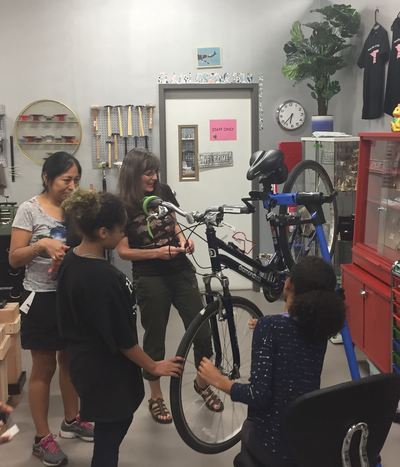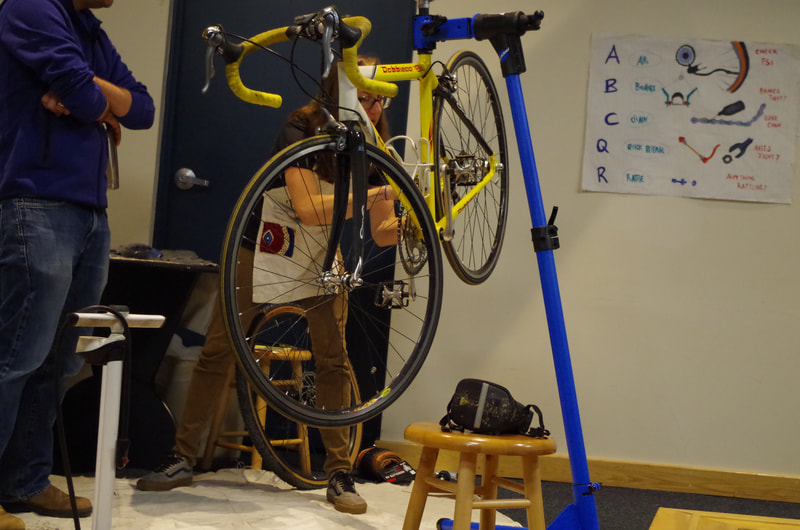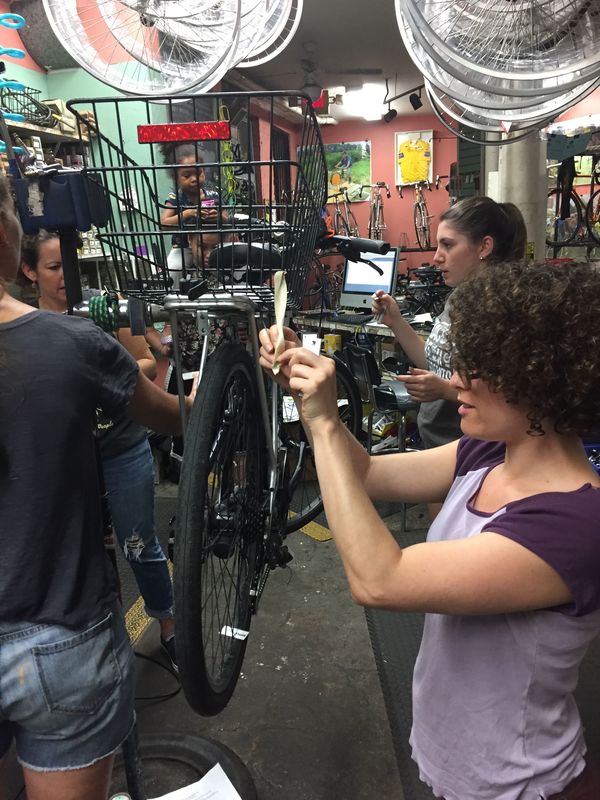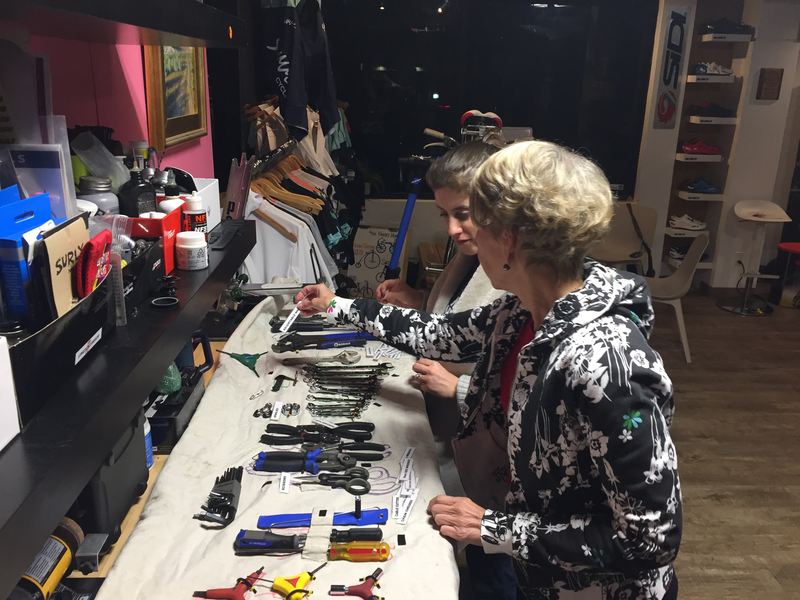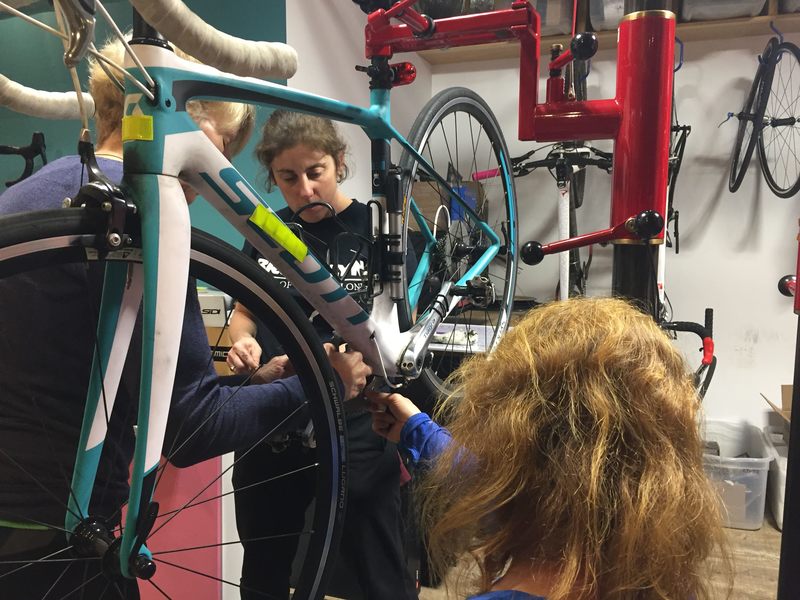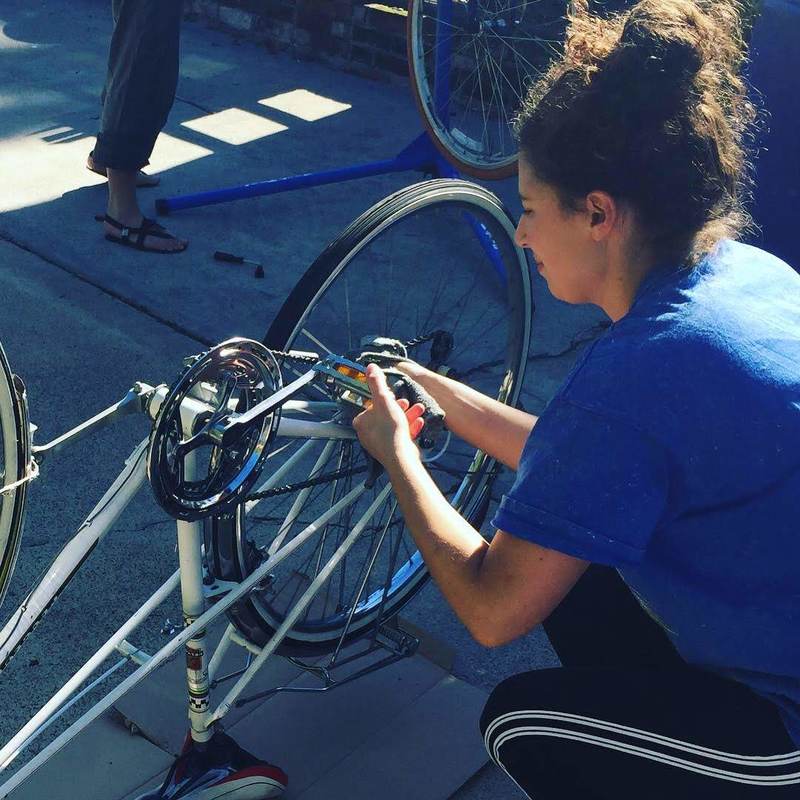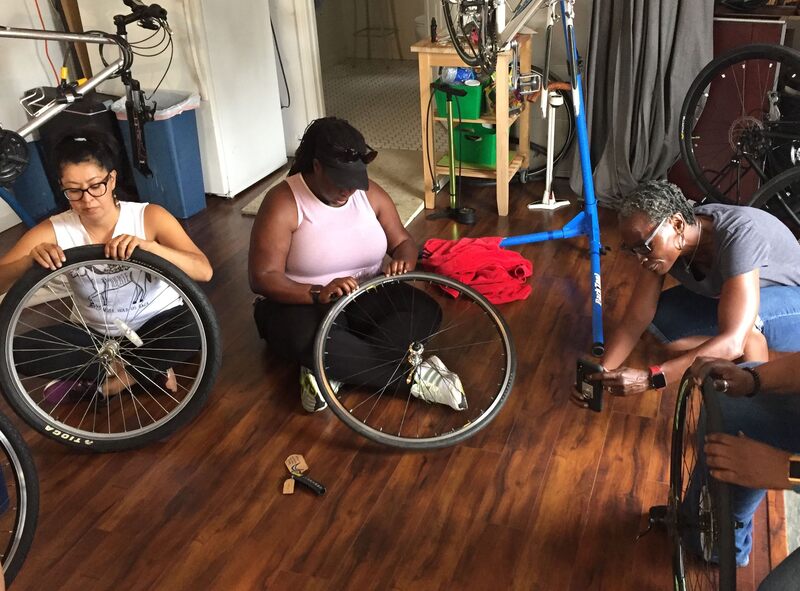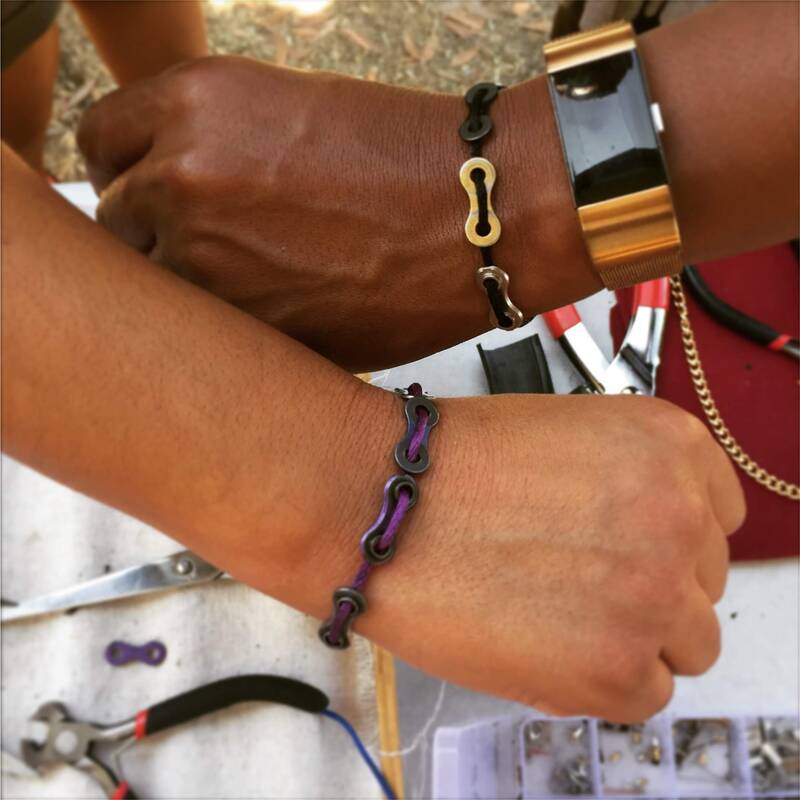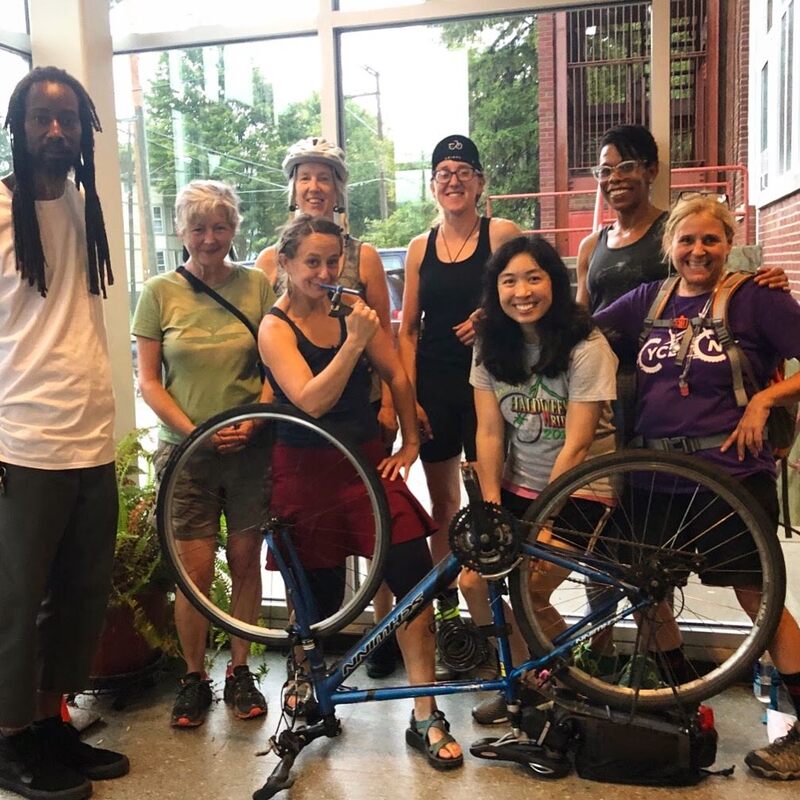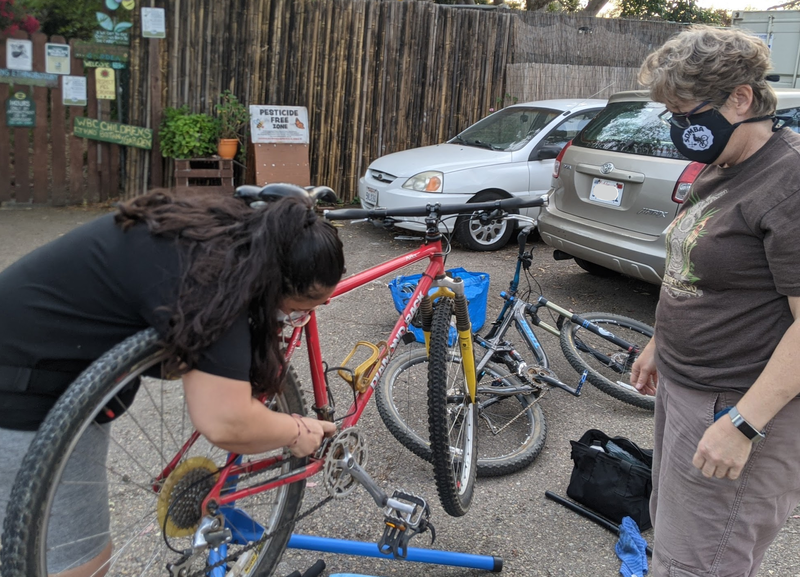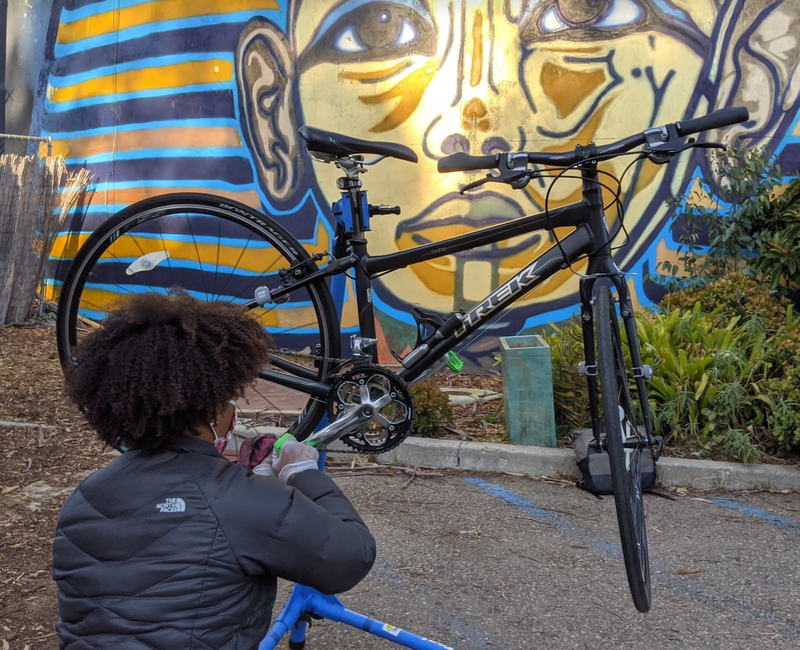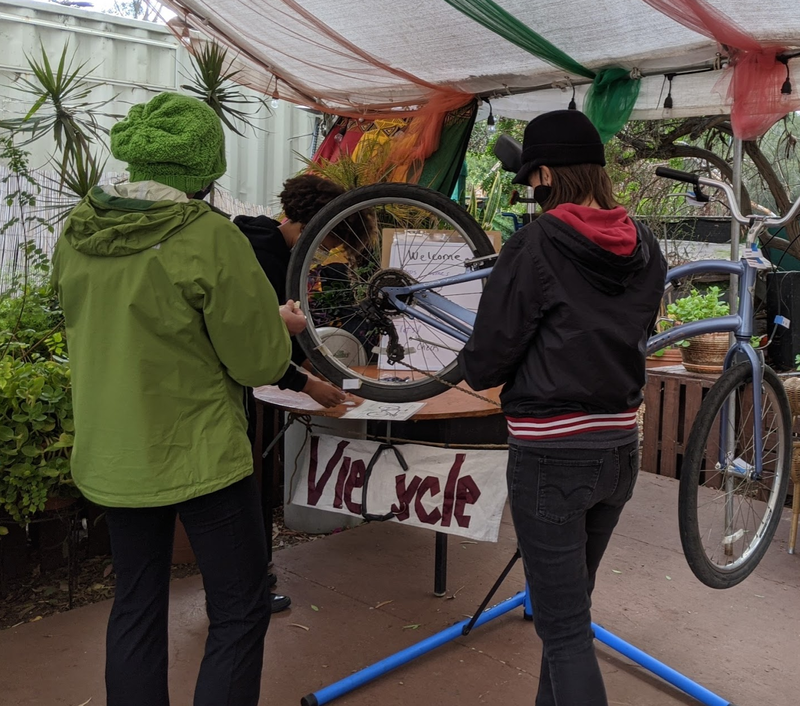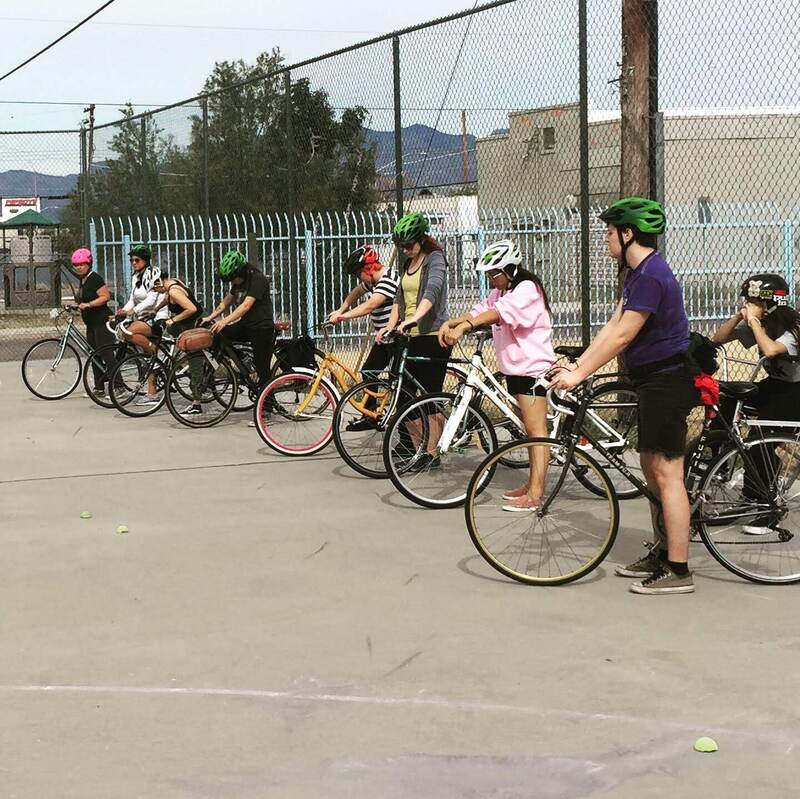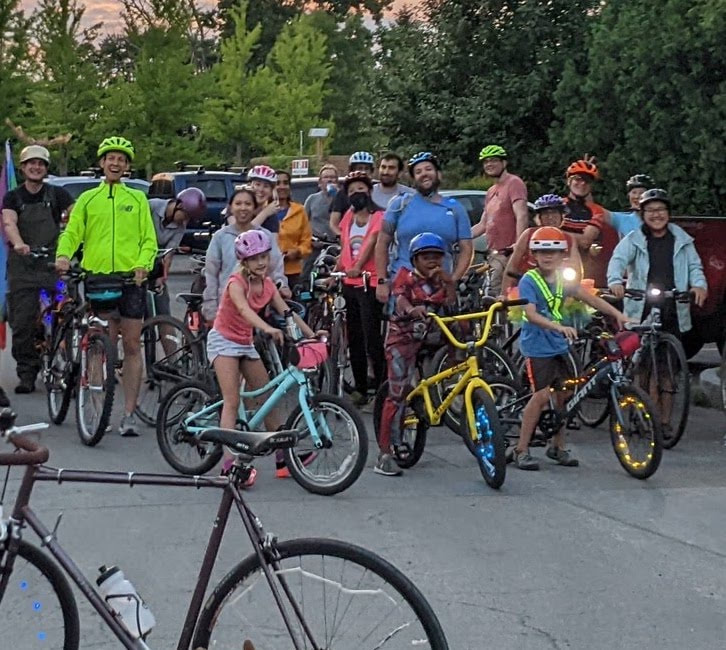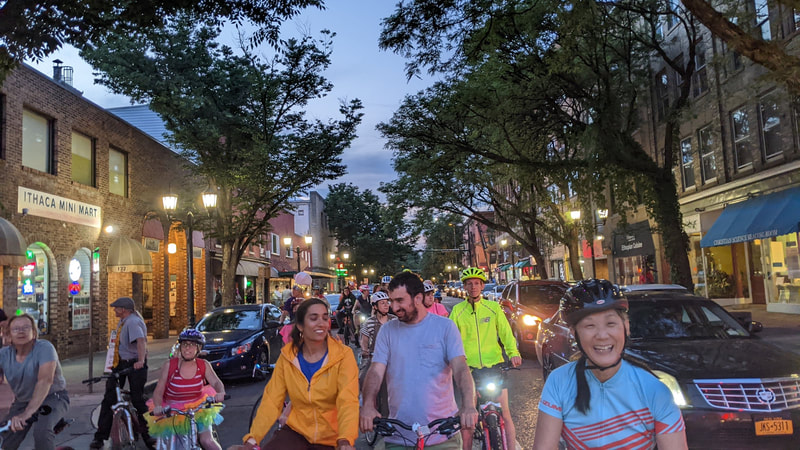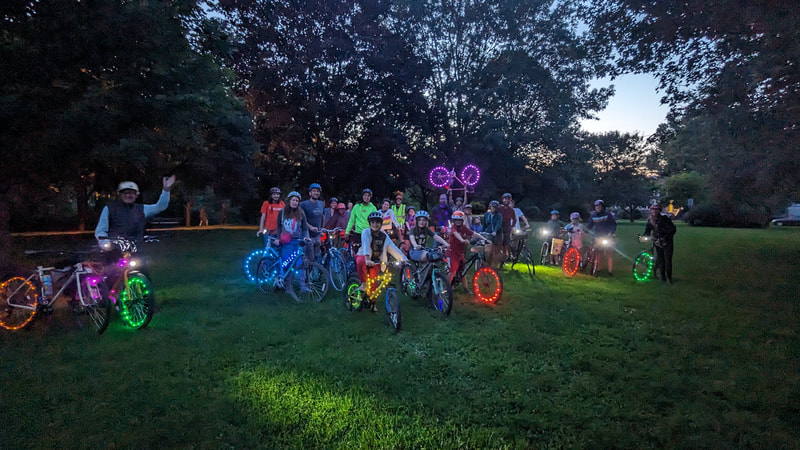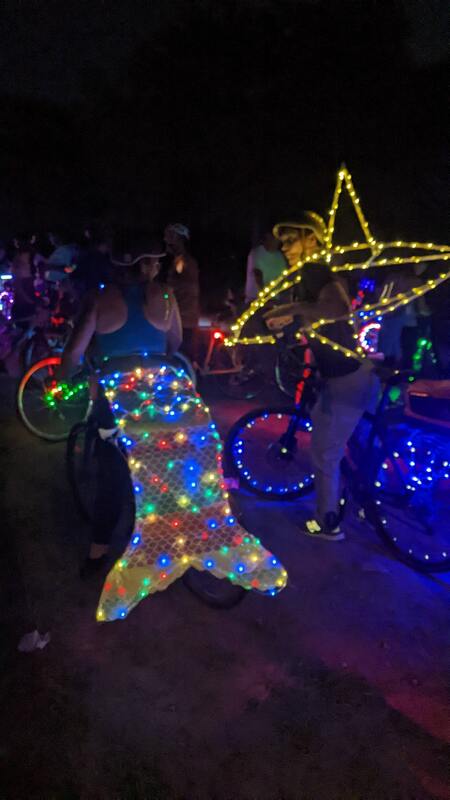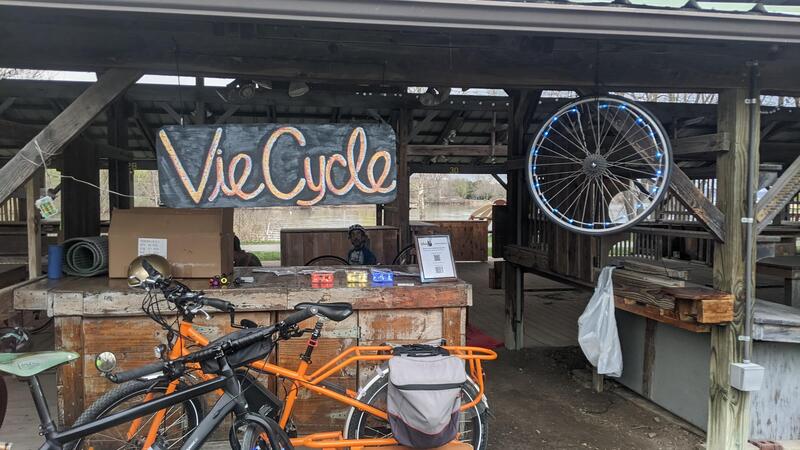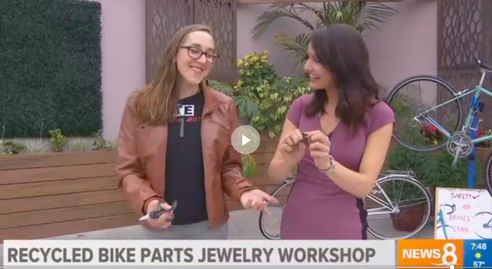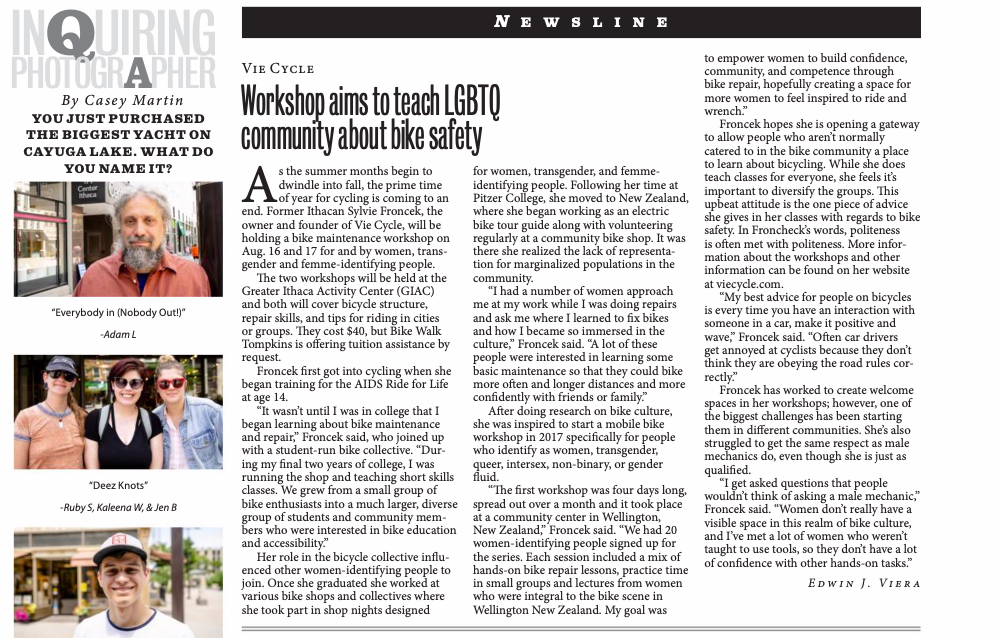Vie Cycle in the News
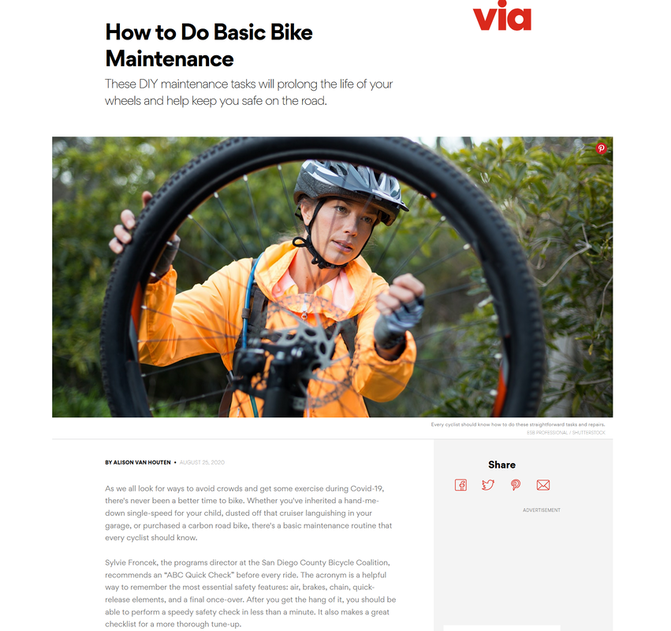
Excerpt from Via Magazine:
"1. Prepare your workstation.
A bike stand is helpful, but it's easy to make due without one. Simply flip your bike upside down, putting a rag under the seat and handlebars to protect against scrapes and dirt. If you prefer to stand and don't have a table or counter of an appropriate height, some vehicle bike racks can work as makeshift bike stands.
Though it's not necessary to clean your bike before working on it, it’s a good opportunity to remove grime, something you should be doing regularly to prolong the life of your parts. A rag dipped in a bucket of diluted dish soap is ideal, but a hose works, too—just take care that you don't spray water into any of the moving components that might have grease packed in them, such as the hubs and the headset."
Article from AAA's Via Magazine, August 25th, 2020
"1. Prepare your workstation.
A bike stand is helpful, but it's easy to make due without one. Simply flip your bike upside down, putting a rag under the seat and handlebars to protect against scrapes and dirt. If you prefer to stand and don't have a table or counter of an appropriate height, some vehicle bike racks can work as makeshift bike stands.
Though it's not necessary to clean your bike before working on it, it’s a good opportunity to remove grime, something you should be doing regularly to prolong the life of your parts. A rag dipped in a bucket of diluted dish soap is ideal, but a hose works, too—just take care that you don't spray water into any of the moving components that might have grease packed in them, such as the hubs and the headset."
Article from AAA's Via Magazine, August 25th, 2020
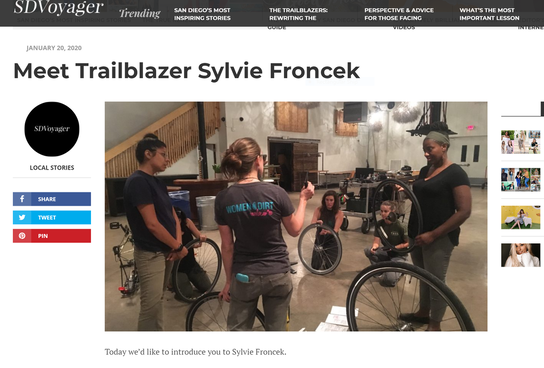
Excerpt from the SD Voyage Article:
"Alright – so let’s talk business. Tell us about Vie Cycle – what should we know?
I teach mobile bike maintenance workshops for people who identify as women, trans, femme, queer, intersex, non-binary. These range from a short 1-hour class to 4-day programs that take place over four weeks. During the classes, students learn basic bike repair skills and they work together, teach each other and practice.
I teach with the Theory of Multiple Intelligences in mind, which is to say that I try to include a variety of teaching techniques to allow learning on many levels. People learn best not from lectures or demonstrations, but from hands-on experiences, making mistakes, trying, failing, practicing, critiquing…I use paintings, music, tactile tools, science, and math during my lessons. The majority of the time, students are holding tools, working on their own bikes and collaborating with each other.
Since not everyone loves wrenching on bikes, I offer other types of workshops. We make jewelry from recycled bike parts as a way to experience bike culture and bring meaning to the phrase “reduce, reuse, recycle.”
I don’t want Vie Cycle to just be about bikes. It’s about gender, sexuality, culture, racial justice, social justice, cooperation, community building, self-reliance, sustainability, mental health, education…
I’ve met a lot of people who work at bike shops and teach a class here and there, but there is a difference between a bike mechanic who teaches classes and an educator who runs bike maintenance workshops. That’s what sets me apart. I was an outdoor educator first and I fell in love with bikes. Most of my classes are not about training mechanics, they’re about inspiring people to love bikes, learn about themselves and build community."
Article from SD Voyager, January 20th, 2020
"Alright – so let’s talk business. Tell us about Vie Cycle – what should we know?
I teach mobile bike maintenance workshops for people who identify as women, trans, femme, queer, intersex, non-binary. These range from a short 1-hour class to 4-day programs that take place over four weeks. During the classes, students learn basic bike repair skills and they work together, teach each other and practice.
I teach with the Theory of Multiple Intelligences in mind, which is to say that I try to include a variety of teaching techniques to allow learning on many levels. People learn best not from lectures or demonstrations, but from hands-on experiences, making mistakes, trying, failing, practicing, critiquing…I use paintings, music, tactile tools, science, and math during my lessons. The majority of the time, students are holding tools, working on their own bikes and collaborating with each other.
Since not everyone loves wrenching on bikes, I offer other types of workshops. We make jewelry from recycled bike parts as a way to experience bike culture and bring meaning to the phrase “reduce, reuse, recycle.”
I don’t want Vie Cycle to just be about bikes. It’s about gender, sexuality, culture, racial justice, social justice, cooperation, community building, self-reliance, sustainability, mental health, education…
I’ve met a lot of people who work at bike shops and teach a class here and there, but there is a difference between a bike mechanic who teaches classes and an educator who runs bike maintenance workshops. That’s what sets me apart. I was an outdoor educator first and I fell in love with bikes. Most of my classes are not about training mechanics, they’re about inspiring people to love bikes, learn about themselves and build community."
Article from SD Voyager, January 20th, 2020
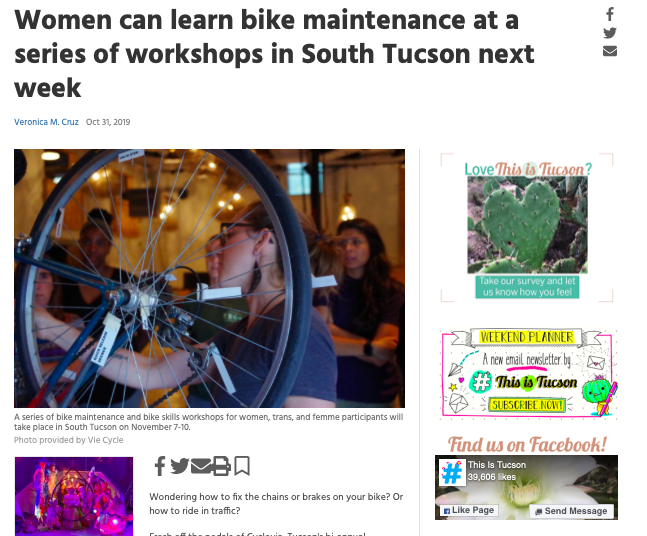
A beautiful introduction to our South Tucson WTF Bike Workshop November 7th-10th 2019.
Thanks to Quality Bike Products for awarding us the Community Grant for this project.
Thanks to Roadrunner Bicycles, Living Streets Alliance, John Valenzuela Youth Center and Pima County Department of Public Health for supporting the 4-day workshop series.
Click the link below to read the article.
#ThisIsTucson
Step inside the workshop
Click the video below to see a group of Vie Cyclists at Cycleast (Austin, TX) labelling bike parts together during a bike anatomy lesson.
B-Side Stories Podcast
An interview on Wellington Access Radio with Sylvie Froncek and Steph Cairns. May 2017
